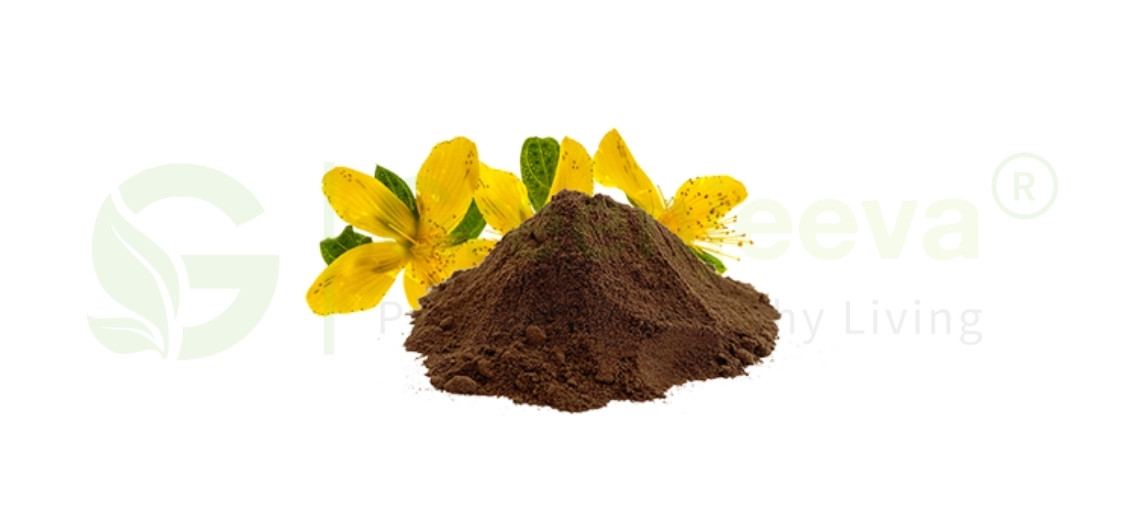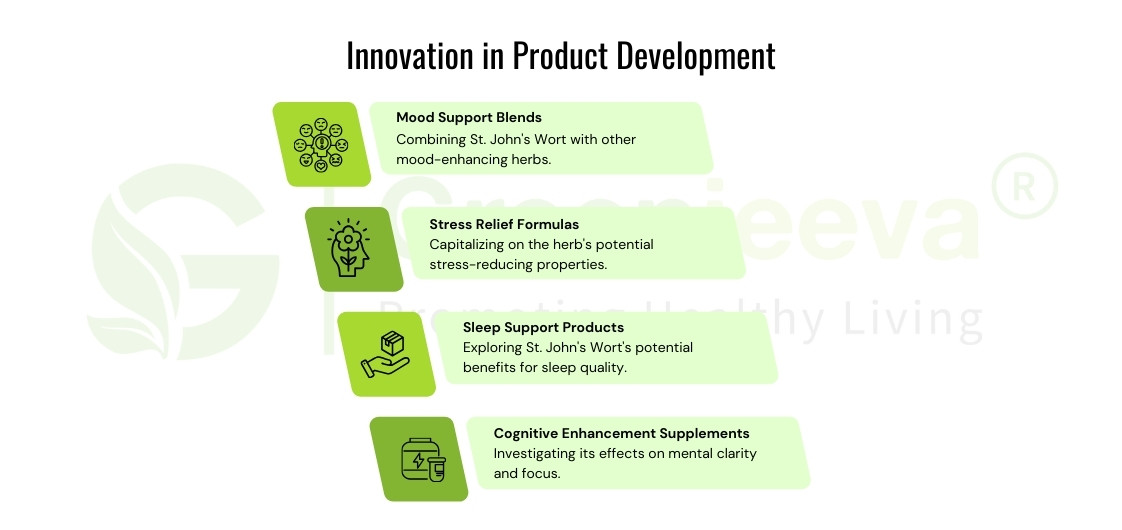
A quiet revolution is taking place in the bustling marketplace of mood support supplements. Organic St. John's Wort powder, an ancient herb with a modern mission, is challenging the long-standing dominance of synthetic alternatives. This shift isn't just a fleeting trend; it reflects a more profound transformation in consumer consciousness and scientific understanding.
The pharmaceutical approach to mood support has reigned supreme for decades, with lab-created compounds promising quick fixes and standardized results. But as the veil lifts on the complexities of mental well-being, a more holistic, nature-based approach is gaining traction. Organic St. John's Wort powder stands at the forefront of this movement, offering a compelling blend of traditional wisdom and contemporary research.
This shift presents both a challenge and an unprecedented opportunity for wholesale suppliers and manufacturers in the supplement industry. The battle between organic St. John's Wort powder and its synthetic counterparts isn't just about efficacy—it's about meeting the evolving demands of an increasingly informed and health-conscious consumer base.
As we delve into this comparative analysis, we'll uncover the science, market trends, and consumer insights reshaping the landscape of mood support supplements. Whether you're a seasoned player in the natural products industry or a newcomer exploring the potential of botanical ingredients, understanding the nuances of this organic versus synthetic debate is crucial for navigating the future of wellness products.
Prepare to explore how nature's mood booster is not just competing with, but in many ways surpassing, its lab-created rivals and what this means for the future of your product line.
St. John's Wort, a plant with a rich history dating back to ancient Greece, has long been revered for its potential mood-enhancing properties. Its organic powder form is gaining renewed attention in the supplement industry, challenging the status quo of synthetic mood support products.
St. John's Wort contains several active compounds, including hypericin and hyperforin, which are believed to be responsible for its mood-modulating effects. A study published in the Journal of Clinical Psychopharmacology found that St. John's Wort extract was as effective as standard antidepressants for mild to moderate depression, with fewer side effects.
Bioavailability: Organic St. John's Wort powder contains a complex matrix of compounds that may enhance absorption and efficacy.
Sustainability: Organic cultivation practices align with growing consumer demand for environmentally friendly products.

Purity: Organic certification prevents synthetic pesticides and fertilizers.
Synergistic Effects: The full spectrum of plant compounds may offer benefits beyond isolated synthetic alternatives.
The global herbal supplement market is experiencing robust growth. According to a report by Grand View Research, the market size was valued at USD 86.74 billion in 2020 and is expected to expand at a compound annual growth rate (CAGR) of 6.6% from 2021 to 2028. Within this market, organic products are gaining significant traction.
A survey by the Organic Trade Association found that 78% of U.S. families say they purchase organic products at least sometimes. This trend extends to the supplement market, where consumers are increasingly seeking natural, plant-based alternatives to synthetic drugs.
When incorporating organic St. John's Wort powder into products, manufacturers should consider the following:
Standardization: Ensuring consistent levels of active compounds across batches.
Stability: Protecting the powder from light and moisture to maintain potency.
Synergistic Ingredients: Exploring combinations that enhance mood support effects.
Dosage: Determining optimal dosage based on current research and regulatory guidelines.
While organic St. John's Wort powder offers numerous benefits, it's not without challenges:
Variability: Depending on growing conditions, natural products can vary in potency.
Cost: Organic cultivation may produce higher raw material costs than synthetic alternatives.
Education: Consumers may need education on the benefits of organic over synthetic options.
However, these challenges also present opportunities for differentiation and value-added marketing.
The versatility of organic St. John's Wort powder opens up numerous innovation opportunities:

Mood Support Blends: Combining St. John's Wort with other mood-enhancing herbs.
Stress Relief Formulas: Capitalizing on the herb's potential stress-reducing properties.
Sleep Support Products: Exploring St. John's Wort's potential benefits for sleep quality.
Cognitive Enhancement Supplements: Investigating its effects on mental clarity and focus.
Also Read: https://www.greenjeeva.com/blog/organic-wholesale-supplier-dried-prune-powder-guide
The comparative analysis between Organic St. John's Wort Powder and synthetic alternatives reveals a clear trend toward natural, plant-based solutions in the mood support category. For wholesale suppliers and manufacturers, this presents a unique opportunity to tap into a growing market of health-conscious consumers seeking effective, natural alternatives to synthetic drugs.
By embracing the potential of organic St. John's Wort powder, companies can position themselves at the forefront of the natural supplement industry, offering products that meet the demands of today's consumers and align with broader trends toward sustainability and holistic health.
As the industry continues to evolve, those who recognize and harness the power of organic, plant-based ingredients like St. John's Wort powder will likely find themselves well-positioned to meet the market's changing needs and drive innovation in the field of natural mood support.
**The Food and Drug Administration has not evaluated these statements. This product is not intended to diagnose, treat, cure, or prevent any disease.**